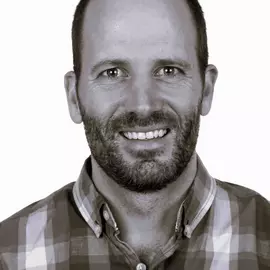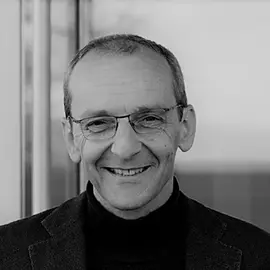Circulation systems for the purification of waste water
Cape Town, a major city, announced Day Zero for the first time in 2018. It would be the day on which domestic drinking water supplies had to be shut down. Droughts caused by climate change and an increasing demand for water could mean that such events become even more frequent in the coming decades. This makes it all the more important to reuse water in the future. Grey water, which contains neither faeces nor urine, is particularly suitable for reuse due to its low level of contamination and, according to the Swiss Gas and Water Industry Association in Switzerland, it accounts for around 70 % or 100 litres of domestic wastewater per day.
From the point of view of eco-technology, this represents an enormous potential for recycling solutions.
Eco-Tech Demo Object (MODO)

Our research group has developed a mobile eco-tech demo unit «MODO», which serves as a demonstration and research facility for eco-technologies and new sanitation systems on the Grüental Campus. MODO is a washroom facility which is self-sufficient in terms of both energy and water. It produces its own energy and cleans polluted water in a container, making it available for reuse. The wastewater from the washing machine (grey water) is circulated.
As part of the topic «water-autonomous washing cycle» (LaundReCycle), you have the possibility to write a Master's thesis on the optimisation of various operating parameters:
- System cleaning performance
- Microbiology in conjunction with cleaning performance
- In-system germ elimination (hygiene)
- Creating water and load balance
- Concept development for handling of faeces
- Coal pyrolysis made from faeces / value chains
LaundReCycle
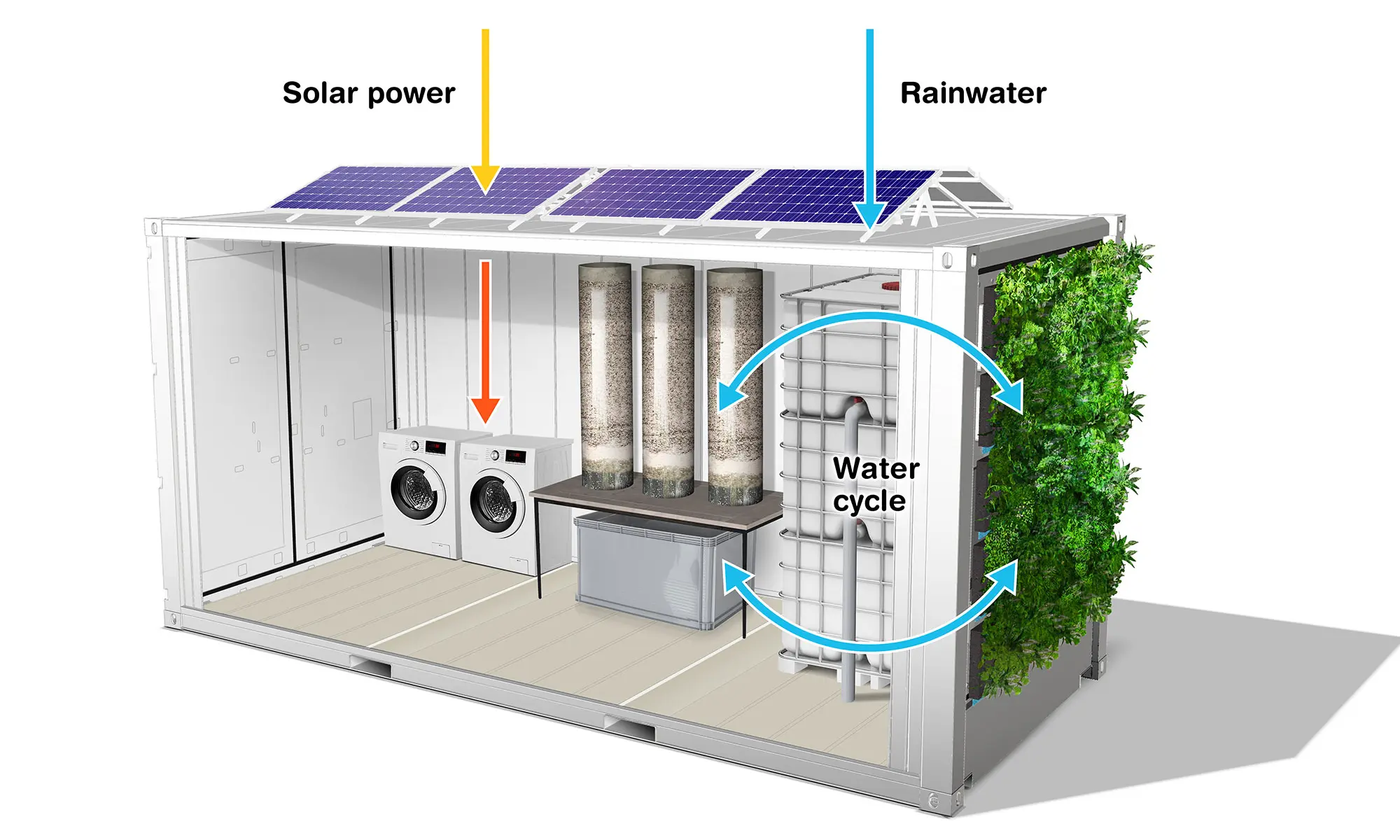
South Africa’s water resources are under pressure and the development of new solutions is urgently needed. The aim of the LaundReCycle project is to develop a water- and energy self-sufficient laundromat that does not require any power, fresh- or wastewater connection and offers socio-economic development to local communities.
Swimming ponds
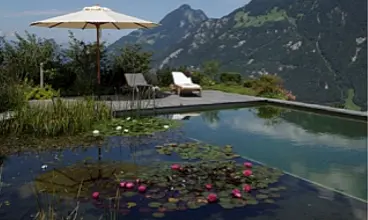
Swimming ponds (also: bathing ponds, biological pools, natural pools) are systems based on natural waters and differ from conventional swimming pools in the purely biological treatment of the bathing water. Plants and animals can settle in such swimming ponds and use them as habitats, meaning that waters such as these provide a substitute habitat. Chemical substances (e.g. chlorine or other disinfectants) are not used, thereby relieving the environment of this burden.
Reference project
Bio-filter II - Filter tests provide a basis for product safety and innovation in the field of biological treatment of swimming waters.
The project aims to better understand the use of bio-filters in swimming ponds and to develop a certification for testing as a basis of product innovation. The performance of present-day bio-filters is tested, and optimisation possibilities are identified. By dispensing with chemical substances (e.g. chlorine or other disinfectants), bio-filters relieve the burden on the environment.
At a glance
- Project partner: SVBP
- Client: BAFU
- Duration: April 2016 to December 2018
ZEBISTIS - Zero Emission Buildings
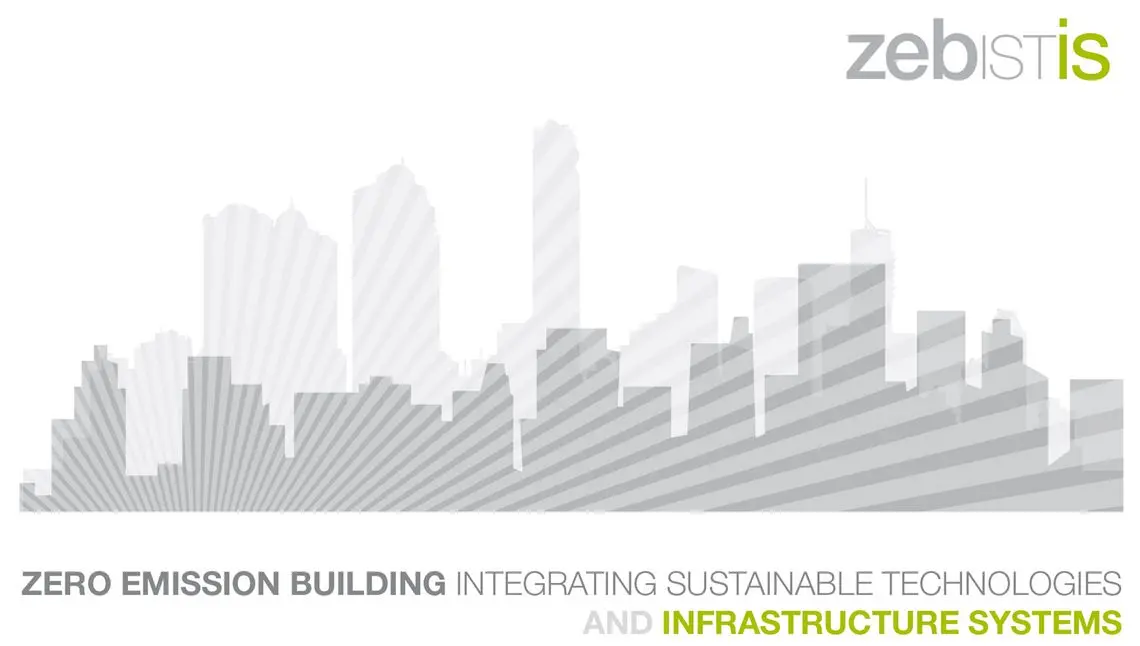
The aim of the ZEBISTIS project is to promote the exchange of knowledge and to create a framework for zero-emission buildings. Such buildings do not cause harmful emissions but can even have a positive environmental impact by producing energy, water and resources.
Student projects
- Project Work Research Unit 2: D. Bodenmann (2022, unveröffentlicht). «ECO-Shelter» Buswartehalle mit Dachbegrünung und solarbetriebener Bewässerung.(PDF 4,2 MB) Wädenswil: Zürcher Hochschule für angewandte Wissenschaften
- Bachelor Thesis: Brändle, T. (2019, unveröffentlicht). Grauwasseraufbereitung mit dem Ziel eines wasserautarken Waschmaschinenbetriebs. Wädenswil: Zürcher Hochschule für angewandte Wissenschaften
- Bachelor Thesis: Balducci, A. (2019, unveröffentlicht). Green wall for greywater treatment: literature review and wall design. Wädenswil: Zürcher Hochschule für angewandte Wissenschaften
- Bachelor Thesis: Zybach, Ch. (2019, unveröffentlicht). Filteroptimierung für die nachhaltige Aufbereitung von Waschmaschinenabwasser. Wädenswil: Zürcher Hochschule für angewandte Wissenschaften
- Semester Thesis 2: Uhland, J. (2019, unveröffentlicht). Optimierung von Biofiltern zur Aufbereitung von Waschmaschinenabwasser. Wädenswil: Zürcher Hochschule für angewandte Wissenschaften
- Project Work Research Unit 2: Mosch, A. (2019, unveröffentlicht). Betrieb eines geschlossenen Wasserkreislaufs beim Waschen. Wädenswil: Zürcher Hochschule für angewandte Wissenschaften
